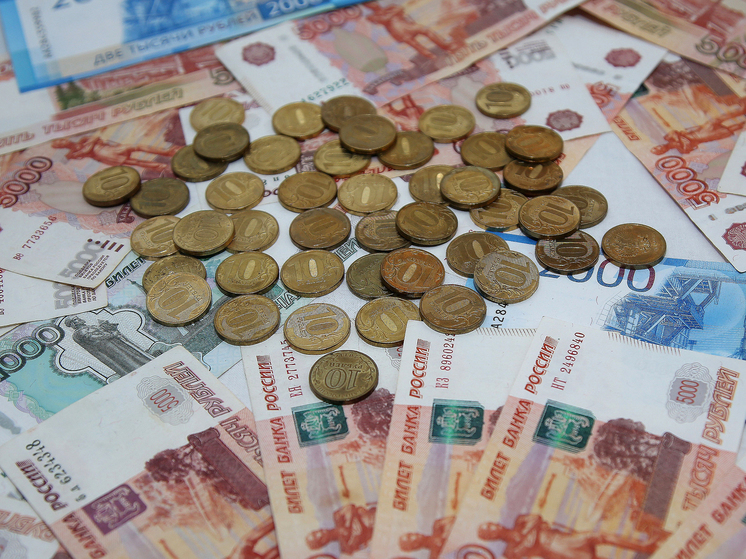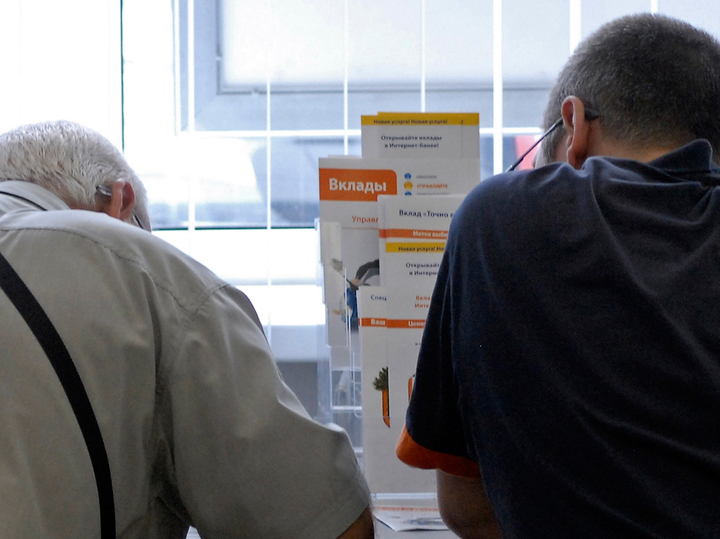Russia has allowed to “accumulate” the tax-free minimum during the deposit period
The day before, the State Duma, in the third reading, adopted a law regulating taxation on long-term deposits. Now the non-taxable tax minimum can accumulate over the course of a deposit opened for more than 15 months. If the amount of interest income from the depositor for the reporting period is less than the tax-free amount, then the difference can reduce to zero the tax base for long-term deposits, the payment of interest on which is made at the end of the deposit term. MK found out from experts what this means in practice and who will be affected by the new norm.

This year, Russians who opened a deposit in 2023 and received income exceeding the non-taxable amount will have to pay Personal income tax. Let us remind you that the law came into force in 2021, but in March 2022 it was allowed not to pay this tax for 2021 and 2022.
The value of the tax-free base is calculated using the formula: 1 million rubles multiplied by the maximum value of the key rate of the Bank of Russia for the past year as of the 1st day of each month (that is, the rate increase in mid-December will not be taken into account). In 2023 it was 15%, respectively, from 1 million rubles this = 150 thousand. Thus, only the amount of interest income on all deposits of a citizen for 2023, which is higher than this value, will be taxed. “Payment of tax for 2023 will begin from September 1 to December 1, 2024, tax notifications will be received either in the taxpayer’s personal account or on the public services portal,” recalled the assistant professor of the basic department of financial control, analysis and audit of the Main Control Department of the city of Moscow REU named after Plekhanov. Yulia Kovalenko. For 2024, tax notices will arrive from September 1, 2025.
However, if the deposit was opened in 2023 for two years, then how will the tax base be taken into account? This is why the State Duma adopted an additional law. Let's look at it with an example.
«In 2023, a person received income from deposits in the amount of 70 thousand rubles, since the non-taxable amount was then 150 thousand rubles, then there is no need to pay tax on them for the previous year, and the non-taxable balance of 80 thousand rubles is retained by the borrower and will be taken into account when calculating the tax on long-term deposits in the current year,» explains Freedom Finance Global analyst Vladimir Chernov. — If the amount of a long-term deposit for 15 months was 2 million rubles, it was placed at 15% per annum in 2023, then this year it will be closed with an income of 300 thousand rubles. The non-taxable amount of tax this year is still 160 thousand rubles (currently the Central Bank of the Russian Federation rate is 16%), plus the person has an unused amount of non-taxable tax from last year in the amount of 80 thousand rubles. It turns out that from the income from a long-term bank deposit of 300 thousand rubles, it will be necessary to pay tax only on the amount of 60 thousand rubles, which at the personal income tax rate of 13% per annum will amount to only 7800 rubles.»

However, the tax on deposits will not affect most Russians. According to the Deposit Insurance Agency for May of this year, the average citizen’s deposit is 343 thousand rubles. According to Chernov, personal income tax on bank deposits in Russia will have to be paid by about 1% of the country's population.
“Of course, for owners of long-term deposits, the news that it is possible to use the unused balance of the tax-free base for a certain period is positive ,” says Senior Vice President of Fontvielle Investment Company Anastasia Khrustaleva. “It is important that interest income is taken into account on all accounts and deposits of one person, and not only those interests that come to a separate account are taken into account, but also those that increase the capitalization of the current one.” Conveniently, the deposit owners will not need to calculate anything. Banks themselves transmit information to the Federal Tax Service, and it, in turn, issues a “tax invoice” to citizens, the expert recalled. In addition, as investment adviser Yulia Kuznetsova pointed out, the tax does not have to be paid immediately, but only next year. The main thing is not to forget to do this and periodically check the tax office website so as not to miss the payment deadline and not receive a penalty.


